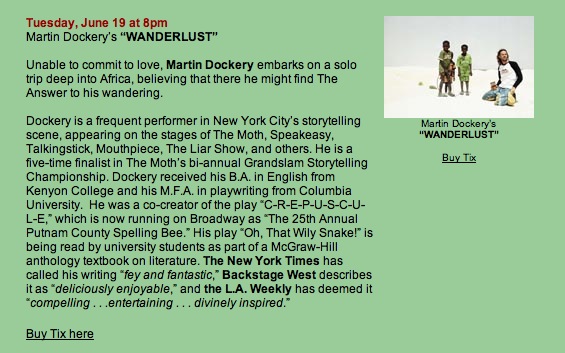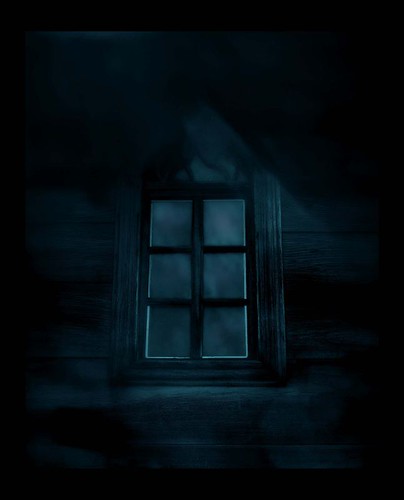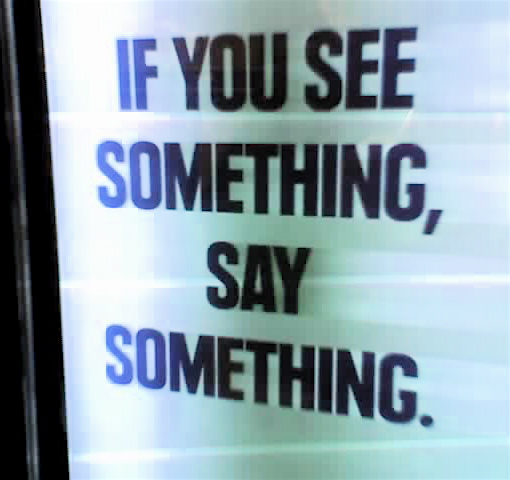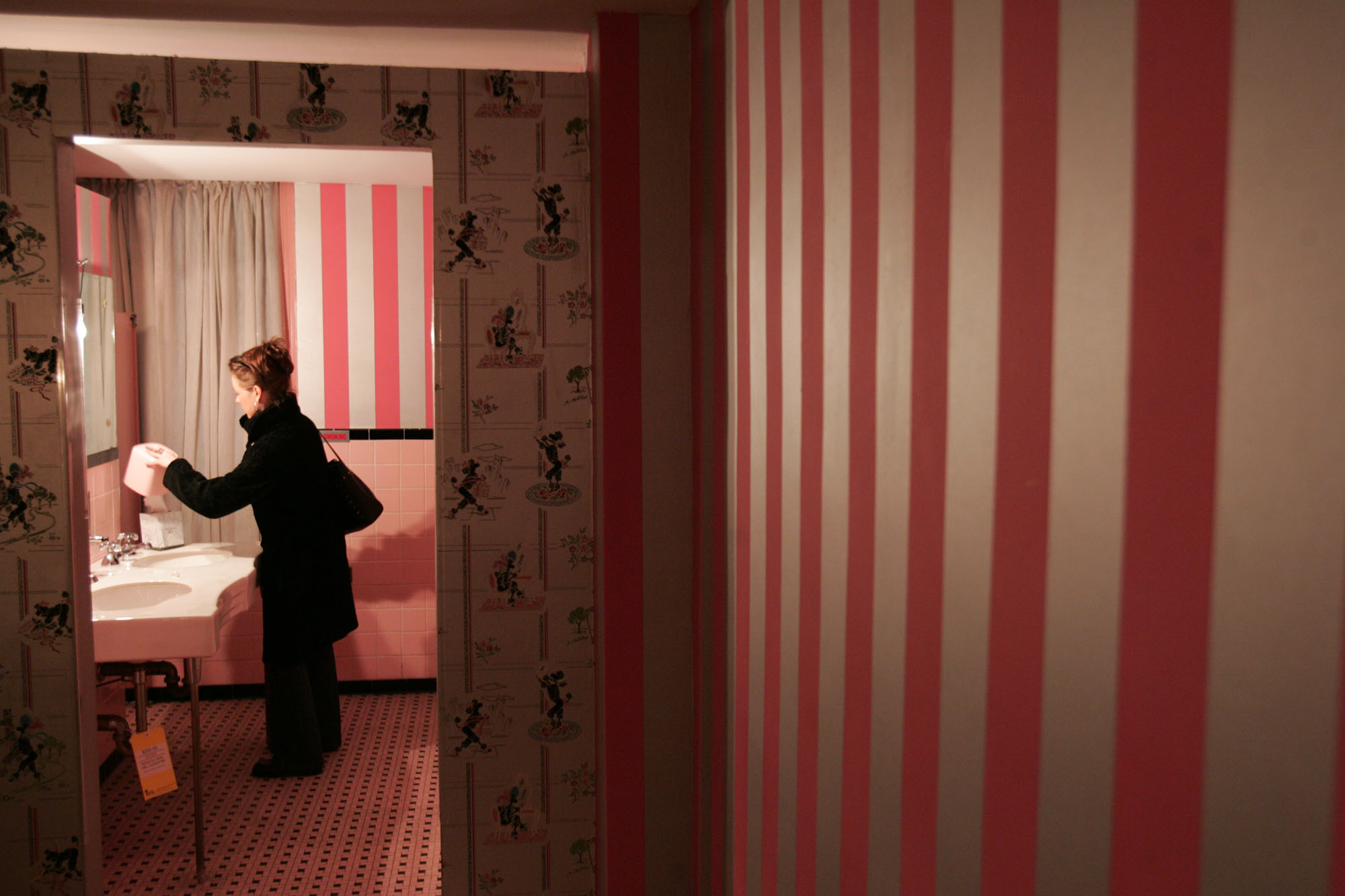
Thursday, May 31, 2007
Time Out New York: Why the hipster must die:
“The mainstream hipster,” he explained, “is not an artist or a musician. He has an office job, and wears one hat to work and another at night.” Presumably, the latter is a trucker—or a porkpie—hat.
The mouth of a real-estate agent is rarely the source of truth, but Mr. Desjadon knows his territory (and is no doubt cashing in on this knowledge). He has unwittingly explicated the transformation of the hipster into the “indie yuppie,” an avatar we might imagine as the fusion of Kurt Cobain and Adam Gopnik. The indie yuppie is (literally) the child of the bobo, and just as his father the baby boomer did, he has learned to simulate rebellion while procuring and furnishing a comfortable two-bedroom. His haircut may be asymmetrical, but his dog never misses a walk. And around the corner, sleeping on couches, neophyte slackers dream until they wake up late for their temp jobs. The savvy among them soon grasp that they’ve arrived at the party too late.
“The mainstream hipster,” he explained, “is not an artist or a musician. He has an office job, and wears one hat to work and another at night.” Presumably, the latter is a trucker—or a porkpie—hat.
The mouth of a real-estate agent is rarely the source of truth, but Mr. Desjadon knows his territory (and is no doubt cashing in on this knowledge). He has unwittingly explicated the transformation of the hipster into the “indie yuppie,” an avatar we might imagine as the fusion of Kurt Cobain and Adam Gopnik. The indie yuppie is (literally) the child of the bobo, and just as his father the baby boomer did, he has learned to simulate rebellion while procuring and furnishing a comfortable two-bedroom. His haircut may be asymmetrical, but his dog never misses a walk. And around the corner, sleeping on couches, neophyte slackers dream until they wake up late for their temp jobs. The savvy among them soon grasp that they’ve arrived at the party too late.
The Daily Dish: "Verschärfte Vernehmung":
Critics will no doubt say I am accusing the Bush administration of being Hitler. I'm not. There is no comparison between the political system in Germany in 1937 and the U.S. in 2007. What I am reporting is a simple empirical fact: the interrogation methods approved and defended by this president are not new. Many have been used in the past. The very phrase used by the president to describe torture-that-isn't-somehow-torture - "enhanced interrogation techniques" - is a term originally coined by the Nazis. The techniques are indistinguishable. The methods were clearly understood in 1948 as war-crimes. The punishment for them was death.
Critics will no doubt say I am accusing the Bush administration of being Hitler. I'm not. There is no comparison between the political system in Germany in 1937 and the U.S. in 2007. What I am reporting is a simple empirical fact: the interrogation methods approved and defended by this president are not new. Many have been used in the past. The very phrase used by the president to describe torture-that-isn't-somehow-torture - "enhanced interrogation techniques" - is a term originally coined by the Nazis. The techniques are indistinguishable. The methods were clearly understood in 1948 as war-crimes. The punishment for them was death.
Michael Moore's "Sicko" (techyum):
I don't have health insurance. A few weeks ago I applied for Blue Cross, and was denied based on "health conditions". I am totally, completely healthy and disease-free. Confused, I called Blue Cross to find out what they could possibly be referring to. After half an hour on the phone, I finally got a representative who explained to me that there were "claims" against my health on my record. I asked what that meant, and was told that because I had *seen a doctor* in the past 12 months, I was not eligible for coverage -- the "claims" were from a doctor filing a report that he'd seen me and prescribed nasal spray for my irritated sinuses. So because I saw a doctor, I was declined coverage, period. No appeal. Incidentally, I've spent the past two weeks in a depressed and fatalistic funk.
I don't have health insurance. A few weeks ago I applied for Blue Cross, and was denied based on "health conditions". I am totally, completely healthy and disease-free. Confused, I called Blue Cross to find out what they could possibly be referring to. After half an hour on the phone, I finally got a representative who explained to me that there were "claims" against my health on my record. I asked what that meant, and was told that because I had *seen a doctor* in the past 12 months, I was not eligible for coverage -- the "claims" were from a doctor filing a report that he'd seen me and prescribed nasal spray for my irritated sinuses. So because I saw a doctor, I was declined coverage, period. No appeal. Incidentally, I've spent the past two weeks in a depressed and fatalistic funk.
The Reeler > Features > "A Hell of an Experience":
He never used storyboards. Never used storyboards. That's a wonderful feeling of freedom you have as an actor, and I've said several times that Stanley was the closest to a theater director that I ever worked with. That was the process you went through. It's just that instead of taking six weeks to rehearse for a play scene by scene by scene, here we were taking hours and sometimes days to rehearse and shoot and rehearse and shoot. And all the time during rehearsals, he insisted: "Do it for real. Do what you think you will do." Because the way he found his first shot, he used to walk around the set with an Arriflex tube and just change lenses, look around, down, up, move away, move around. Once he found his first shot, he knew he could build the scene from that point. But he said: "If you don't do it properly, if you don't do it for real, you could change the way I think about the scene. You could suddenly put a whole new accent on it." You know, it's such a refreshing way for an actor to work. It really is.
He never used storyboards. Never used storyboards. That's a wonderful feeling of freedom you have as an actor, and I've said several times that Stanley was the closest to a theater director that I ever worked with. That was the process you went through. It's just that instead of taking six weeks to rehearse for a play scene by scene by scene, here we were taking hours and sometimes days to rehearse and shoot and rehearse and shoot. And all the time during rehearsals, he insisted: "Do it for real. Do what you think you will do." Because the way he found his first shot, he used to walk around the set with an Arriflex tube and just change lenses, look around, down, up, move away, move around. Once he found his first shot, he knew he could build the scene from that point. But he said: "If you don't do it properly, if you don't do it for real, you could change the way I think about the scene. You could suddenly put a whole new accent on it." You know, it's such a refreshing way for an actor to work. It really is.
Galapagos Art Space -Theater - New York Times:
In a move that has greater symbolic significance than mere real estate hopscotch, Galapagos Art Space, the pioneering bar and performing arts space that helped put Williamsburg, Brooklyn, on the cultural map, is moving a few neighborhoods down the East River, to Dumbo.
Galapagos, which has played host to a broad array of New York’s musicians, dancers, theater artists, performance artists, fine artists and burlesque dancers during its 12-year existence, is scheduled to move into the space, a 102-year-old, 10,000-square-foot former horse stable at 16 Main Street, in the spring or summer of 2008.
In a move that has greater symbolic significance than mere real estate hopscotch, Galapagos Art Space, the pioneering bar and performing arts space that helped put Williamsburg, Brooklyn, on the cultural map, is moving a few neighborhoods down the East River, to Dumbo.
Galapagos, which has played host to a broad array of New York’s musicians, dancers, theater artists, performance artists, fine artists and burlesque dancers during its 12-year existence, is scheduled to move into the space, a 102-year-old, 10,000-square-foot former horse stable at 16 Main Street, in the spring or summer of 2008.
Wise Guys:
Solo storyteller Mike Daisey has been a favorite visitor at Berkeley Rep in recent years with his monologues 21 Dog Years: Doing Time at Amazon.com in 2004 and The Ugly American the following year. Now he's back with not one, not two, but four new monologues. In Great Men of Genius, Daisey shifts from boisterous anecdotes from his own life to the lives of some even more colorful characters. He holds forth on revolutionary German playwright Bertolt Brecht, eccentric Serbian electrical pioneer and Edison rival Nikola Tesla, and two great hucksters, circus impresario P.T. Barnum and science-fiction author and Scientology founder L. Ron Hubbard. It's not unusual for Daisey to have several balls in the air at a time, often workshopping a new monologue during the run of another or doing series of one-shot impromptu shows. Rather than write down stories, he refines them by telling them night after night, just like a guy on a barstool, with feedback from his director (and wife) Jean-Michele Gregory.
Tuesday, May 29, 2007
Slashdot | The Drive For Altruism Is Hardwired:
"The Washington Post is reporting on recent neuroscience research indicating that the brain is pre-wired to enjoy altruism — placing the interests of others ahead of one's own. In studies, '[G]enerosity activated a primitive part of the brain that usually lights up in response to food or sex... Altruism, the experiment suggested, was not a superior moral faculty that suppresses basic selfish urges but rather was basic to the brain, hard-wired and pleasurable.' Such research 'has opened up a new window on what it means to be good,' although many philosophers over recorded history have suggested similar things."
"The Washington Post is reporting on recent neuroscience research indicating that the brain is pre-wired to enjoy altruism — placing the interests of others ahead of one's own. In studies, '[G]enerosity activated a primitive part of the brain that usually lights up in response to food or sex... Altruism, the experiment suggested, was not a superior moral faculty that suppresses basic selfish urges but rather was basic to the brain, hard-wired and pleasurable.' Such research 'has opened up a new window on what it means to be good,' although many philosophers over recorded history have suggested similar things."
Gay activists beaten and arrested in Russia | Russia | Guardian Unlimited:
Riot police used violence to break up a gay rights demonstration in Moscow yesterday and arrested several European parliamentarians in what critics say is the latest violation of human rights in Russia.
A group of gay rights activists came under attack from neo-Nazi thugs when they tried to present a petition asking Moscow's mayor, Yuri Luzhkov, to lift a ban on a Gay Pride parade. He has previously dubbed gay rallies "satanic". Witnesses said riot police watched as far-right skinheads chanting "death to homosexuals" beat up several activists.
The police failed to arrest the skinheads but detained several of the Europeans - including the German MP Volker Beck, a member of the Green party, and the radical Italian MEP Marco Capatto. Riot police threw Mr Capatto into a police van. "Why don't you protect us?" he shouted.
"It was absolutely shocking," the gay rights campaigner Peter Tatchell told the Guardian yesterday. "The police stood there while people knocked me to the ground and kicked me. Four or five neo-Nazis attacked me. The police watched. At a certain point the police then arrested me and let my neo-Nazi attackers walk free."
Riot police used violence to break up a gay rights demonstration in Moscow yesterday and arrested several European parliamentarians in what critics say is the latest violation of human rights in Russia.
A group of gay rights activists came under attack from neo-Nazi thugs when they tried to present a petition asking Moscow's mayor, Yuri Luzhkov, to lift a ban on a Gay Pride parade. He has previously dubbed gay rallies "satanic". Witnesses said riot police watched as far-right skinheads chanting "death to homosexuals" beat up several activists.
The police failed to arrest the skinheads but detained several of the Europeans - including the German MP Volker Beck, a member of the Green party, and the radical Italian MEP Marco Capatto. Riot police threw Mr Capatto into a police van. "Why don't you protect us?" he shouted.
"It was absolutely shocking," the gay rights campaigner Peter Tatchell told the Guardian yesterday. "The police stood there while people knocked me to the ground and kicked me. Four or five neo-Nazis attacked me. The police watched. At a certain point the police then arrested me and let my neo-Nazi attackers walk free."
LA Weekly - General - American Theater's Failure of Nerve - Steven Leigh Morris - The Essential Online Resource for Los Angeles:
I can’t imagine an unorthodox, once-befuddling little play like Waiting for Godot — with its capacities both to turn the theater on its head and to confound half the audience — standing a chance at a festival like this. Here, the playwrights are in consultation with too many intermediaries, even at the formative stages of their plays, just like in the movies. With no marketing strategy in place, Waiting for Godot was eventually produced in every corner of the globe, on the strength of its conviction and literary merit, stemming from the uncompromising vision of an author who wrote in a kind of solitary confinement. Samuel Beckett certainly didn’t collaborate with directors, dramaturges or anybody else while he was in the formative process of writing, yet this is now the protocol in American new-play development.
I can’t imagine an unorthodox, once-befuddling little play like Waiting for Godot — with its capacities both to turn the theater on its head and to confound half the audience — standing a chance at a festival like this. Here, the playwrights are in consultation with too many intermediaries, even at the formative stages of their plays, just like in the movies. With no marketing strategy in place, Waiting for Godot was eventually produced in every corner of the globe, on the strength of its conviction and literary merit, stemming from the uncompromising vision of an author who wrote in a kind of solitary confinement. Samuel Beckett certainly didn’t collaborate with directors, dramaturges or anybody else while he was in the formative process of writing, yet this is now the protocol in American new-play development.
Charles Nelson Reilly, Tony-Winning Comic Actor, Dies at 76 - New York Times:
Charles Nelson Reilly, who acted and directed on Broadway but came to be best known for his campy television appearances on talk shows and “Match Game,” died on Friday in Los Angeles. He was 76 and lived in Beverly Hills, Calif.
Charles Nelson Reilly, who acted and directed on Broadway but came to be best known for his campy television appearances on talk shows and “Match Game,” died on Friday in Los Angeles. He was 76 and lived in Beverly Hills, Calif.
Monday, May 28, 2007
Sunday, May 27, 2007
I Lost My Son to a War I Oppose. We Were Both Doing Our Duty. - washingtonpost.com:
Parents who lose children, whether through accident or illness, inevitably wonder what they could have done to prevent their loss. When my son was killed in Iraq earlier this month at age 27, I found myself pondering my responsibility for his death.
Among the hundreds of messages that my wife and I have received, two bore directly on this question. Both held me personally culpable, insisting that my public opposition to the war had provided aid and comfort to the enemy. Each said that my son's death came as a direct result of my antiwar writings.
This may seem a vile accusation to lay against a grieving father. But in fact, it has become a staple of American political discourse, repeated endlessly by those keen to allow President Bush a free hand in waging his war. By encouraging "the terrorists," opponents of the Iraq conflict increase the risk to U.S. troops. Although the First Amendment protects antiwar critics from being tried for treason, it provides no protection for the hardly less serious charge of failing to support the troops -- today's civic equivalent of dereliction of duty.
What exactly is a father's duty when his son is sent into harm's way?
Parents who lose children, whether through accident or illness, inevitably wonder what they could have done to prevent their loss. When my son was killed in Iraq earlier this month at age 27, I found myself pondering my responsibility for his death.
Among the hundreds of messages that my wife and I have received, two bore directly on this question. Both held me personally culpable, insisting that my public opposition to the war had provided aid and comfort to the enemy. Each said that my son's death came as a direct result of my antiwar writings.
This may seem a vile accusation to lay against a grieving father. But in fact, it has become a staple of American political discourse, repeated endlessly by those keen to allow President Bush a free hand in waging his war. By encouraging "the terrorists," opponents of the Iraq conflict increase the risk to U.S. troops. Although the First Amendment protects antiwar critics from being tried for treason, it provides no protection for the hardly less serious charge of failing to support the troops -- today's civic equivalent of dereliction of duty.
What exactly is a father's duty when his son is sent into harm's way?
Boing Boing: Homework sucks: The case against homework:
Sara Bennett and Nancy Kalish 2006 book "The Case Against Homework" is a fine and frightening explosion of the homework myth: that giving kids homework improves their educational outcome. The authors start by tracing the explosion in homework since the eighties, and especially since the advent of the ill-starred No Child Left Behind regime, which has teachers drilling, drilling, drilling their kids on math and reading to the exclusion of all else.
Kindergarten kids are assigned homework. Kids get homework over the weekend. Over vacations. When they're away sick for a day.
What's more, all the credible research on homework suggests that for younger kids, homework has no connection with positive learning outcomes, and for older kids, the benefits of homework level off sharply after the first couple assignments.
Not that most teachers would know this -- homework theory and design isn't on the curriculum at most teachers' colleges, and most teachers surveyed report that they have never received any training on designing and assessing homework.
Sara Bennett and Nancy Kalish 2006 book "The Case Against Homework" is a fine and frightening explosion of the homework myth: that giving kids homework improves their educational outcome. The authors start by tracing the explosion in homework since the eighties, and especially since the advent of the ill-starred No Child Left Behind regime, which has teachers drilling, drilling, drilling their kids on math and reading to the exclusion of all else.
Kindergarten kids are assigned homework. Kids get homework over the weekend. Over vacations. When they're away sick for a day.
What's more, all the credible research on homework suggests that for younger kids, homework has no connection with positive learning outcomes, and for older kids, the benefits of homework level off sharply after the first couple assignments.
Not that most teachers would know this -- homework theory and design isn't on the curriculum at most teachers' colleges, and most teachers surveyed report that they have never received any training on designing and assessing homework.
Atheists with Attitude: Books: The New Yorker:
Great portents and disasters turn some minds to God and others away from him. When an unusually bright and long-tailed comet was tracked through the sky in the last two months of 1680, posters and sermons called on Christians to repent. A hen in Rome seemed to confirm that the Day of Judgment was near. On December 2nd, it made an extraordinarily loud cackle and produced an exceptionally large egg, on which could be seen a likeness of the comet, or so it was said. This added to the religious panic. But the comet also sparked a small triumph for rationalism. In the next few years, as Armageddon somehow failed to arrive, a stream of pamphlets across Europe and America argued that heavenly displays were purely natural phenomena. The skeptics won the day. From the eighteenth century onward, no respectable intellectual saw comets as direct messages from God—though there were still some fears that one might eventually hit the earth.
Great portents and disasters turn some minds to God and others away from him. When an unusually bright and long-tailed comet was tracked through the sky in the last two months of 1680, posters and sermons called on Christians to repent. A hen in Rome seemed to confirm that the Day of Judgment was near. On December 2nd, it made an extraordinarily loud cackle and produced an exceptionally large egg, on which could be seen a likeness of the comet, or so it was said. This added to the religious panic. But the comet also sparked a small triumph for rationalism. In the next few years, as Armageddon somehow failed to arrive, a stream of pamphlets across Europe and America argued that heavenly displays were purely natural phenomena. The skeptics won the day. From the eighteenth century onward, no respectable intellectual saw comets as direct messages from God—though there were still some fears that one might eventually hit the earth.
The Silent Treatment - New York Times:
CHICO is a dog.
But Chico is also a Broadway star! He’s in newspaper ads and on posters! The marketing strategy of “Legally Blonde: The Musical” is all but centered on him.
Fine. But two waitresses at B Bar in the East Village thought nothing of scratching his ears while he dined. The world is unfair and it judges by superficialities, like whether one relieves oneself in public.
It was Monday night, one of Chico’s two nights off. Over grilled chicken and baby carrots, he looked by turns world-weary and aloof.
“Rawrf,” he said when the chicken was taken away. But that was all he would volunteer, throughout the entire dinner. “Rawrf.”
CHICO is a dog.
But Chico is also a Broadway star! He’s in newspaper ads and on posters! The marketing strategy of “Legally Blonde: The Musical” is all but centered on him.
Fine. But two waitresses at B Bar in the East Village thought nothing of scratching his ears while he dined. The world is unfair and it judges by superficialities, like whether one relieves oneself in public.
It was Monday night, one of Chico’s two nights off. Over grilled chicken and baby carrots, he looked by turns world-weary and aloof.
“Rawrf,” he said when the chicken was taken away. But that was all he would volunteer, throughout the entire dinner. “Rawrf.”
Slashdot | Free Ads Can Be Really Expensive:
"Companies are finding that this 'Web 2.0' user participation thing sometimes isn't all its cracked up to be. The New York Times reports on the efforts of big companies to harness consumer enthusiasm for assistance with advertising. Heinz, for example, is running a campaign asking users to submit videos using their product in inventive ways. The problem, of course, is that most of the submissions are utterly terrible. The result is a headache in terms of quality control and making use of the turned in submissions. 'Heinz hopes to show more than five of them, if there are enough that convey a positive, appealing message about Heinz ketchup, he said. But advertising executives who have seen some of the entries say that Heinz may be hard pressed to find any that it is proud to run on television in September. "These are just so bad," said Linda Kaplan Thaler, chief executive of the Kaplan Thaler Group, an advertising agency in New York that is not involved with Heinz's contest. One of the most viewed Heinz videos -- seen, at last count, more than 12,800 times -- ends with a close-up of a mouth with crooked, yellowed teeth. When Ms. Kaplan Thaler saw it, she wondered, "Were his teeth the result of, maybe, too much Heinz?"'"
"Companies are finding that this 'Web 2.0' user participation thing sometimes isn't all its cracked up to be. The New York Times reports on the efforts of big companies to harness consumer enthusiasm for assistance with advertising. Heinz, for example, is running a campaign asking users to submit videos using their product in inventive ways. The problem, of course, is that most of the submissions are utterly terrible. The result is a headache in terms of quality control and making use of the turned in submissions. 'Heinz hopes to show more than five of them, if there are enough that convey a positive, appealing message about Heinz ketchup, he said. But advertising executives who have seen some of the entries say that Heinz may be hard pressed to find any that it is proud to run on television in September. "These are just so bad," said Linda Kaplan Thaler, chief executive of the Kaplan Thaler Group, an advertising agency in New York that is not involved with Heinz's contest. One of the most viewed Heinz videos -- seen, at last count, more than 12,800 times -- ends with a close-up of a mouth with crooked, yellowed teeth. When Ms. Kaplan Thaler saw it, she wondered, "Were his teeth the result of, maybe, too much Heinz?"'"
Slashdot | A "Bill of Lights" to Restrict LEDs on Gadgets?:
"Mike Elgan has had it with useless lights on gadgets and computers. He singles out the Palm Treo and the Dell XPS gaming laptops as being particularly bad with the use of unnecessary lights, and also cites the plethora of LEDs on desktop PCs and peripherals. 'My PC and other computing equipment make my office look like a jet cockpit. I have two LCD monitors, each of which has two indicator lights that flash even when the PC is turned off. The attached sound control has a light on it. My keyboard has multiple lights. The power cord has lights, the printer has lights, and the power button is illuminated. My cable modem and Linksys router flash like crazy all the time. Together, these useless lights create a visual cacophony of blinking, multicolored lights that make me feel like I'm taking part in a NASA stress test for astronaut candidates.' Elgan calls on manufacturers to respect his 'Gadget Bill of Lights' to restrict the use of nag lights and allow users to turn them off. He also says the industry should pay more attention to industrial design when creating new products."
"Mike Elgan has had it with useless lights on gadgets and computers. He singles out the Palm Treo and the Dell XPS gaming laptops as being particularly bad with the use of unnecessary lights, and also cites the plethora of LEDs on desktop PCs and peripherals. 'My PC and other computing equipment make my office look like a jet cockpit. I have two LCD monitors, each of which has two indicator lights that flash even when the PC is turned off. The attached sound control has a light on it. My keyboard has multiple lights. The power cord has lights, the printer has lights, and the power button is illuminated. My cable modem and Linksys router flash like crazy all the time. Together, these useless lights create a visual cacophony of blinking, multicolored lights that make me feel like I'm taking part in a NASA stress test for astronaut candidates.' Elgan calls on manufacturers to respect his 'Gadget Bill of Lights' to restrict the use of nag lights and allow users to turn them off. He also says the industry should pay more attention to industrial design when creating new products."
Saturday, May 26, 2007
Watch and Ward Society:
The Watch and Ward Society was a Boston, Massachusetts organization involved in the censorship of books and the performing arts from the late 19th Century to the middle of the 20th Century.
Founded by John Frank Chase in 1878 as the New England Society for the Suppression of Vice (inspired by Anthony Comstock's New York Society for the Suppression of Vice), it held its first annual meeting in the Park Street Church in 1879. In 1891, it was renamed the Watch and Ward Society after an old volunteer police force, adopting the mission to "watch and ward off evildoers."
At the height of the society's power, the Boston Public Library kept books that had been deemed objectionable in a locked room, publishers and booksellers held back publications for fear of the organization's influence with prosecutors and judges, and plays were performed in a bowdlerized "Boston Version". Elsewhere, the phrase, "Banned in Boston," became a target of parody and a marketing slogan.
The Watch and Ward Society was a Boston, Massachusetts organization involved in the censorship of books and the performing arts from the late 19th Century to the middle of the 20th Century.
Founded by John Frank Chase in 1878 as the New England Society for the Suppression of Vice (inspired by Anthony Comstock's New York Society for the Suppression of Vice), it held its first annual meeting in the Park Street Church in 1879. In 1891, it was renamed the Watch and Ward Society after an old volunteer police force, adopting the mission to "watch and ward off evildoers."
At the height of the society's power, the Boston Public Library kept books that had been deemed objectionable in a locked room, publishers and booksellers held back publications for fear of the organization's influence with prosecutors and judges, and plays were performed in a bowdlerized "Boston Version". Elsewhere, the phrase, "Banned in Boston," became a target of parody and a marketing slogan.
Friday, May 25, 2007
Slashdot | Why Microsoft Won't List Claimed Patent Violations:
"Earlier today, Microsoft announced it will begin actively seeking reparations for claimed patent infringement by Linux and the open source community in general. One opinion on why Microsoft won't reveal these 235 alleged IP infringements to the public is that they're afraid of having the claims debunked or challenged — so instead they're waiting until the OS community comes to the bargaining table. But a more optimistic thought is that Microsoft may be afraid to list these supposed violations because it knows the patents can be worked around by the open source community, leaving Microsoft high and dry without any leverage at all."
"Earlier today, Microsoft announced it will begin actively seeking reparations for claimed patent infringement by Linux and the open source community in general. One opinion on why Microsoft won't reveal these 235 alleged IP infringements to the public is that they're afraid of having the claims debunked or challenged — so instead they're waiting until the OS community comes to the bargaining table. But a more optimistic thought is that Microsoft may be afraid to list these supposed violations because it knows the patents can be worked around by the open source community, leaving Microsoft high and dry without any leverage at all."
This Is Your Life (and How You Tell It) - New York Times:
For more than a century, researchers have been trying to work out the raw ingredients that account for personality, the sweetness and neuroses that make Anna Anna, the sluggishness and sensitivity that make Andrew Andrew. They have largely ignored the first-person explanation — the life story that people themselves tell about who they are, and why.
Stories are stories, after all. The attractive stranger at the airport bar hears one version, the parole officer another, and the P.T.A. board gets something entirely different. Moreover, the tone, the lessons, even the facts in a life story can all shift in the changing light of a person’s mood, its major notes turning minor, its depths appearing shallow.
Yet in the past decade or so a handful of psychologists have argued that the quicksilver elements of personal narrative belong in any three-dimensional picture of personality. And a burst of new findings are now helping them make the case. Generous, civic-minded adults from diverse backgrounds tell life stories with very similar and telling features, studies find; so likewise do people who have overcome mental distress through psychotherapy.
For more than a century, researchers have been trying to work out the raw ingredients that account for personality, the sweetness and neuroses that make Anna Anna, the sluggishness and sensitivity that make Andrew Andrew. They have largely ignored the first-person explanation — the life story that people themselves tell about who they are, and why.
Stories are stories, after all. The attractive stranger at the airport bar hears one version, the parole officer another, and the P.T.A. board gets something entirely different. Moreover, the tone, the lessons, even the facts in a life story can all shift in the changing light of a person’s mood, its major notes turning minor, its depths appearing shallow.
Yet in the past decade or so a handful of psychologists have argued that the quicksilver elements of personal narrative belong in any three-dimensional picture of personality. And a burst of new findings are now helping them make the case. Generous, civic-minded adults from diverse backgrounds tell life stories with very similar and telling features, studies find; so likewise do people who have overcome mental distress through psychotherapy.
Al Gore and Tom Friedman think we're paying attention to the wrong things. - By Jack Shafer - Slate Magazine:
Gore is right to fault celebrity news for blotting out coverage of climate change, health care, immigration, and international relations in such policy journals as People, Star, In Touch, and US Weekly and on such public-affairs programs as Access Hollywood, Entertainment Tonight, and E! News. But a more generous definition of the press—one that includes daily newspapers, weekly magazines, general-interest TV news, and the Web—would find Gore's argument lacking. By my back-of-the envelope estimate, your average big-city daily carries more news about immigration (or other significant issue du jour) in one day than it does about every celebrity on the planet in a full week.
In condemning Britney-obsessed reporters and readers, Gore takes the easy route. If he possessed any real courage in his conviction that news coverage of the frivolous blocks the discussion of serious "issues," he'd attack sports coverage. Sports capture a billion times the attention that celebrities do and probably swallow 20 percent of the news budget of dailies. The reason Gore gives sports coverage a bye while castigating Britney coverage is simple: Sports fans talk back—loudly—and folks who crave entertainment-news coverage are too embarrassed to defend their innocent diversion.
Gore is right to fault celebrity news for blotting out coverage of climate change, health care, immigration, and international relations in such policy journals as People, Star, In Touch, and US Weekly and on such public-affairs programs as Access Hollywood, Entertainment Tonight, and E! News. But a more generous definition of the press—one that includes daily newspapers, weekly magazines, general-interest TV news, and the Web—would find Gore's argument lacking. By my back-of-the envelope estimate, your average big-city daily carries more news about immigration (or other significant issue du jour) in one day than it does about every celebrity on the planet in a full week.
In condemning Britney-obsessed reporters and readers, Gore takes the easy route. If he possessed any real courage in his conviction that news coverage of the frivolous blocks the discussion of serious "issues," he'd attack sports coverage. Sports capture a billion times the attention that celebrities do and probably swallow 20 percent of the news budget of dailies. The reason Gore gives sports coverage a bye while castigating Britney coverage is simple: Sports fans talk back—loudly—and folks who crave entertainment-news coverage are too embarrassed to defend their innocent diversion.
Parabasis: Thoroughly Ensconced:
Second, in a move that can only be accurately called totally fucking lame the ban on gay men giving blood has been renewed. Can I just say how TFL it is that this country still finds ways to not only insult gay people, but perpetuate really hateful negative stereotypes? Awesome. God, could the FDA suck any more than it already does? They let melamine into our food from China, but decide banning gay men from giving blood is a smart move?
Second, in a move that can only be accurately called totally fucking lame the ban on gay men giving blood has been renewed. Can I just say how TFL it is that this country still finds ways to not only insult gay people, but perpetuate really hateful negative stereotypes? Awesome. God, could the FDA suck any more than it already does? They let melamine into our food from China, but decide banning gay men from giving blood is a smart move?
Thursday, May 24, 2007
Rat Sass » Travelling Light:
Travelling Light is my only play but I instigated a redux of it some years back as a writing/producing project with David Bucci, Lisa D’Amour, Josh Furst, and other rat playwrights. Bucci bought a van with a play commission from Woolly Mammoth and toured northeast out of Texas with his rock band. Lisa left Portland in her Eagle headed toward Minneapolis and New York. I drove this humungous vehicle called the Ratmobile around the country from Memphis to Vegas, Los Angeles, Dallas, and Philadelphia. Josh was with me on the Memphis to LA tour and we collected short plays from other writers enroute to a rat conference. Bucci sent postcards, Lisa sent audiotapes, Josh and I posted web pages and photos from Internet pods at truck stops. I can’t remember the time sequence on all this, but it was a years long relationship. All of us did make a rendezvous once in New York for a two week long performance frenzy at four different venues– HERE, Ohio Theatre, New York Theatre Workshop, and Coney Island USA.
The most memorable for me was the one at Coney Island. Bucci played guitar as Lisa sang a song to the dead eye of a Steeplechase horse from the museum. I was Naked Elvis entourage in the bathtub. For the finale Bucci was tied down in a chair. Jennifer Miller, the bearded lady performing in Sideshows by the Seashore downstairs was supposed to come up between acts to perform a striptease for Bucci as she recited some Camile Pagila text but she missed her cue. So it was left to Lisa to take a razor to Bucci’s seven-year-old sideburns as the audience lined up and poured wine over Naked Elvis. The project never ended, just sort of faded away. I still hang with Josh some; he’s moved into the Dean Street hood, but I have lost touch with Lisa and Bucci. I imagine by now they have retired from the road as I have, the price of gas and all.
Travelling Light is my only play but I instigated a redux of it some years back as a writing/producing project with David Bucci, Lisa D’Amour, Josh Furst, and other rat playwrights. Bucci bought a van with a play commission from Woolly Mammoth and toured northeast out of Texas with his rock band. Lisa left Portland in her Eagle headed toward Minneapolis and New York. I drove this humungous vehicle called the Ratmobile around the country from Memphis to Vegas, Los Angeles, Dallas, and Philadelphia. Josh was with me on the Memphis to LA tour and we collected short plays from other writers enroute to a rat conference. Bucci sent postcards, Lisa sent audiotapes, Josh and I posted web pages and photos from Internet pods at truck stops. I can’t remember the time sequence on all this, but it was a years long relationship. All of us did make a rendezvous once in New York for a two week long performance frenzy at four different venues– HERE, Ohio Theatre, New York Theatre Workshop, and Coney Island USA.
The most memorable for me was the one at Coney Island. Bucci played guitar as Lisa sang a song to the dead eye of a Steeplechase horse from the museum. I was Naked Elvis entourage in the bathtub. For the finale Bucci was tied down in a chair. Jennifer Miller, the bearded lady performing in Sideshows by the Seashore downstairs was supposed to come up between acts to perform a striptease for Bucci as she recited some Camile Pagila text but she missed her cue. So it was left to Lisa to take a razor to Bucci’s seven-year-old sideburns as the audience lined up and poured wine over Naked Elvis. The project never ended, just sort of faded away. I still hang with Josh some; he’s moved into the Dean Street hood, but I have lost touch with Lisa and Bucci. I imagine by now they have retired from the road as I have, the price of gas and all.
Apparently I am in a season of controversy, which to some degree I understand--after all, GREAT MEN OF GENIUS talks about L. Ron Hubbard and Scientology, and TONGUES WILL WAG contains autobiographical details of abortion--but it appears to be happening even to my older works.
THE UGLY AMERICAN aired on BBC Radio 4 last week, a rebroadcast from two years earlier when I first recorded it for them, and this time around generated a great deal of heat about language (sound familiar?), appropriateness (also familiar) and subject matter.
The BBC, completists that they are, covered the issue on air--the complete story is posted below.
BBC Feedback program on The Ugly American controversy.
I'm told that there's been so much response to this subject that they are actually doing another follow-up story this week--I'll post the additional audio when it becomes available. For the record, here's the short statement I sent in to the program:
Just to be clear--in last Friday's program, my monologue is introduced by talking about how it is about, "...his adventures, real and imagined...". This is quite inaccurate--this monologue, like all my monologues, is exclusively nonfictional.
I feel this is important, because the complexities of sex and violence in our lives are very real, and all too often we refuse to address them--silence is a common reaction to any controversial subject. THE UGLY AMERICAN strives to wrestle with these forces and address them honestly, without flinching--it is not a simple world we live in. As for listeners were sickened and appalled by a simple word, I would suggest that this says more about the listener than the work.
THE UGLY AMERICAN aired on BBC Radio 4 last week, a rebroadcast from two years earlier when I first recorded it for them, and this time around generated a great deal of heat about language (sound familiar?), appropriateness (also familiar) and subject matter.
The BBC, completists that they are, covered the issue on air--the complete story is posted below.
BBC Feedback program on The Ugly American controversy.
I'm told that there's been so much response to this subject that they are actually doing another follow-up story this week--I'll post the additional audio when it becomes available. For the record, here's the short statement I sent in to the program:
Just to be clear--in last Friday's program, my monologue is introduced by talking about how it is about, "...his adventures, real and imagined...". This is quite inaccurate--this monologue, like all my monologues, is exclusively nonfictional.
I feel this is important, because the complexities of sex and violence in our lives are very real, and all too often we refuse to address them--silence is a common reaction to any controversial subject. THE UGLY AMERICAN strives to wrestle with these forces and address them honestly, without flinching--it is not a simple world we live in. As for listeners were sickened and appalled by a simple word, I would suggest that this says more about the listener than the work.
Gasp!: How I Found Happiness in Theater Again:
Two big things happened last week. I finished a final rewrite of a play and I renewed my Dramatist Guild membership.
This will undoubtedly shock those of you who remember the subtext of my 2005/6 Gasp entries: I quit. I quit theater. I quit playwriting and by the way, fuck off.
So what happened to change my mind?
Two big things happened last week. I finished a final rewrite of a play and I renewed my Dramatist Guild membership.
This will undoubtedly shock those of you who remember the subtext of my 2005/6 Gasp entries: I quit. I quit theater. I quit playwriting and by the way, fuck off.
So what happened to change my mind?
Wednesday, May 23, 2007
Project’s Foes Shown Door in Brooklyn - New York Times:
The letter arrived in Marilyn Oliva’s mailbox yesterday from the Brooklyn borough president, Marty Markowitz. It thanked her for her dedication to the community as a member of Community Board 6, but informed her that her services were no longer needed.
Ms. Oliva was disappointed. She was also not alone. Though community board members’ terms are usually renewed routinely, Mr. Markowitz on Monday replaced at least five longtime members who had sought reappointment to Community Board 6, which covers the brownstone neighborhoods of Boerum Hill, Park Slope and Carroll Gardens.
The five members had one thing in common: they voted yes last year on a resolution denouncing Atlantic Yards, the $4 billion development project that Mr. Markowitz has spent three years and much of his political capital extolling.
The letter arrived in Marilyn Oliva’s mailbox yesterday from the Brooklyn borough president, Marty Markowitz. It thanked her for her dedication to the community as a member of Community Board 6, but informed her that her services were no longer needed.
Ms. Oliva was disappointed. She was also not alone. Though community board members’ terms are usually renewed routinely, Mr. Markowitz on Monday replaced at least five longtime members who had sought reappointment to Community Board 6, which covers the brownstone neighborhoods of Boerum Hill, Park Slope and Carroll Gardens.
The five members had one thing in common: they voted yes last year on a resolution denouncing Atlantic Yards, the $4 billion development project that Mr. Markowitz has spent three years and much of his political capital extolling.
The Daily Dish: Gore, Lincoln, and Reason:
I have only read Time.com's excerpt of Al Gore's new book, "The Assault On Reason." But there was enough in it that echoes and resonates with my own political evolution on this blog over the past few years that I just ordered it from Amazon. In many ways, I think Gore's career in public life has really taken off since he abandoned the electoral path in politics. He is a thinker and a loner - and the task of electoral politics, something I think he felt obliged to follow because of his father's legacy, never truly suited him. Now, freed to participate in political life as an unelected crusader, he has found his role at last. I hope he doesn't abandon it. He has done more to raise awareness of a critical issue - climate change - as a private citizen than he ever managed as vice-president. I can't help but feel that the death of his father liberated him as well. He seems much happier because he has stopped trying to be someone he isn't.
I have only read Time.com's excerpt of Al Gore's new book, "The Assault On Reason." But there was enough in it that echoes and resonates with my own political evolution on this blog over the past few years that I just ordered it from Amazon. In many ways, I think Gore's career in public life has really taken off since he abandoned the electoral path in politics. He is a thinker and a loner - and the task of electoral politics, something I think he felt obliged to follow because of his father's legacy, never truly suited him. Now, freed to participate in political life as an unelected crusader, he has found his role at last. I hope he doesn't abandon it. He has done more to raise awareness of a critical issue - climate change - as a private citizen than he ever managed as vice-president. I can't help but feel that the death of his father liberated him as well. He seems much happier because he has stopped trying to be someone he isn't.
The Visible Man: An FBI Target Puts His Whole Life Online:
Hasan Elahi whips out his Samsung Pocket PC phone and shows me how he's keeping himself out of Guantanamo. He swivels the camera lens around and snaps a picture of the Manhattan Starbucks where we're dinking coffee. Then he squints and pecks at the phone's touchscreen. "OK! It's uploading now," says the cheery, 35-year-old artist and Rutgers professor, whose bleached-blond hair complements his fluorescent-green pants. "It'll go public in a few seconds. "Sure enough, a moment later the shot appears on the front page of his Web site, TrackingTransience.net.
There are already tons of pictures there. Elahi will post about a hundred today — the rooms he sat in, the food he ate, the coffees he ordered. Poke around his site and you'll find more than 20,000 images stretching back three years. Elahi has documented nearly every waking hour of his life during that time. He posts copies of every debit card transaction, so you can see what he bought, where, and when. A GPS device in his pocket reports his real-time physical location on a map .
Elahi's site is the perfect alibi. Or an audacious art project. Or both. The Bangladeshi-born American says the US government mistakenly listed him on its terrorist watch list — and once you're on, it's hard to get off. To convince the Feds of his innocence, Elahi has made his life an open book. Whenever they want, officials can go to his site and see where he is and what he's doing. Indeed, his server logs show hits from the Pentagon, the Secretary of Defense, and the Executive Office of the President, among others.
Hasan Elahi whips out his Samsung Pocket PC phone and shows me how he's keeping himself out of Guantanamo. He swivels the camera lens around and snaps a picture of the Manhattan Starbucks where we're dinking coffee. Then he squints and pecks at the phone's touchscreen. "OK! It's uploading now," says the cheery, 35-year-old artist and Rutgers professor, whose bleached-blond hair complements his fluorescent-green pants. "It'll go public in a few seconds. "Sure enough, a moment later the shot appears on the front page of his Web site, TrackingTransience.net.
There are already tons of pictures there. Elahi will post about a hundred today — the rooms he sat in, the food he ate, the coffees he ordered. Poke around his site and you'll find more than 20,000 images stretching back three years. Elahi has documented nearly every waking hour of his life during that time. He posts copies of every debit card transaction, so you can see what he bought, where, and when. A GPS device in his pocket reports his real-time physical location on a map .
Elahi's site is the perfect alibi. Or an audacious art project. Or both. The Bangladeshi-born American says the US government mistakenly listed him on its terrorist watch list — and once you're on, it's hard to get off. To convince the Feds of his innocence, Elahi has made his life an open book. Whenever they want, officials can go to his site and see where he is and what he's doing. Indeed, his server logs show hits from the Pentagon, the Secretary of Defense, and the Executive Office of the President, among others.
Junk Monkey: Another Of My Fifteen Minutes Of Fame:
Listening to Radio 4 a couple of weeks ago, I caught The Ugly American, a very funny little autobiographical play by Mike Daisey, a few days later, by total a hapenstance, I caught Feedback (a Radio 4 listeners' complaints / issues show) in which the play was attacked from all sides for daring to even mention the word 'rape' in a play broadcast during daytime hours.
Listening to Radio 4 a couple of weeks ago, I caught The Ugly American, a very funny little autobiographical play by Mike Daisey, a few days later, by total a hapenstance, I caught Feedback (a Radio 4 listeners' complaints / issues show) in which the play was attacked from all sides for daring to even mention the word 'rape' in a play broadcast during daytime hours.
Tuesday, May 22, 2007
And Then Jason Grote Turned Itself Inside Out: Obies roundup:
So, Village Voice, we've got plenty of love for you, and we hope we can still be friends after our little unseemly, self-serving rant. We need you. We need you as a palliative to the moribund state of our theater institutions, that fabulous invalid who isn't even really that fabulous anymore. We need your smarts and your willingness to take risks. We grew up longing not for an Oscar, not for a Tony, but for an Obie, and we hope we didn't just blog ourselves out of one. And Alexis, it goes without saying that you continue to rock. But we say this in the gentlest, most human way we can muster: c'mon, guys.
So, Village Voice, we've got plenty of love for you, and we hope we can still be friends after our little unseemly, self-serving rant. We need you. We need you as a palliative to the moribund state of our theater institutions, that fabulous invalid who isn't even really that fabulous anymore. We need your smarts and your willingness to take risks. We grew up longing not for an Oscar, not for a Tony, but for an Obie, and we hope we didn't just blog ourselves out of one. And Alexis, it goes without saying that you continue to rock. But we say this in the gentlest, most human way we can muster: c'mon, guys.
This American Life Completes Documentation Of Liberal, Upper-Middle-Class Existence:
CHICAGO—Producers of the long-running Chicago Public Radio program This American Life announced Monday that they have completed their comprehensive 12-year survey of life as a modern upper-middle-class American.
Enlarge Image Ira Glass
Ira Glass compares completing the series to finding out he is a relative of composer Philip Glass.
In what cultural anthropologists are calling a "colossal achievement" in the study of white-collar professionals, the popular radio show has successfully isolated all 7,442 known characteristics of college graduates who earn between $62,500 and $125,000 per year and feel strongly that something should be done about global warming.
CHICAGO—Producers of the long-running Chicago Public Radio program This American Life announced Monday that they have completed their comprehensive 12-year survey of life as a modern upper-middle-class American.
Enlarge Image Ira Glass
Ira Glass compares completing the series to finding out he is a relative of composer Philip Glass.
In what cultural anthropologists are calling a "colossal achievement" in the study of white-collar professionals, the popular radio show has successfully isolated all 7,442 known characteristics of college graduates who earn between $62,500 and $125,000 per year and feel strongly that something should be done about global warming.
Feature Presentation: Financial Page: The New Yorker:
Technology is supposed to make our lives easier, allowing us to do things more quickly and efficiently. But too often it seems to make things harder, leaving us with fifty-button remote controls, digital cameras with hundreds of mysterious features and book-length manuals, and cars with dashboard systems worthy of the space shuttle. This spiral of complexity, often called “feature creep,” costs consumers time, but it also costs businesses money. Product returns in the U.S. cost a hundred billion dollars a year, and a recent study by Elke den Ouden, of Philips Electronics, found that at least half of returned products have nothing wrong with them. Consumers just couldn’t figure out how to use them. Companies now know a great deal about problems of usability and consumer behavior, so why is it that feature creep proves unstoppable?
Technology is supposed to make our lives easier, allowing us to do things more quickly and efficiently. But too often it seems to make things harder, leaving us with fifty-button remote controls, digital cameras with hundreds of mysterious features and book-length manuals, and cars with dashboard systems worthy of the space shuttle. This spiral of complexity, often called “feature creep,” costs consumers time, but it also costs businesses money. Product returns in the U.S. cost a hundred billion dollars a year, and a recent study by Elke den Ouden, of Philips Electronics, found that at least half of returned products have nothing wrong with them. Consumers just couldn’t figure out how to use them. Companies now know a great deal about problems of usability and consumer behavior, so why is it that feature creep proves unstoppable?
Monday, May 21, 2007
Enduring Death | Theater | The Stranger, Seattle's Only Newspaper:
What is it about La Bohème that's so durable? Why would you use this opera as the basis for a musical? If La Bohème is a parable, what is the lesson? That last question is what my date from the Tashiro-Kaplan building and I were trying to figure out. Then it occurred to her. She scrawled it on a piece of paper in the dark, during the last act: "Rich people like to watch poor people die."
What is it about La Bohème that's so durable? Why would you use this opera as the basis for a musical? If La Bohème is a parable, what is the lesson? That last question is what my date from the Tashiro-Kaplan building and I were trying to figure out. Then it occurred to her. She scrawled it on a piece of paper in the dark, during the last act: "Rich people like to watch poor people die."
Journalists quit over censorship | Russia | Guardian Unlimited:
A group of journalists at a state-controlled broadcast news agency in Russia have resigned en masse in one of the few open rebellions in recent years against censorship imposed by the Kremlin.
Eight reporters from the Russian News Service said they could not work under new rules that required them not to interview or mention opposition leaders such as Garry Kasparov and to ensure 50% coverage of "positive news".
A group of journalists at a state-controlled broadcast news agency in Russia have resigned en masse in one of the few open rebellions in recent years against censorship imposed by the Kremlin.
Eight reporters from the Russian News Service said they could not work under new rules that required them not to interview or mention opposition leaders such as Garry Kasparov and to ensure 50% coverage of "positive news".
Slashdot | Microsoft, Sue Me First:
"Supporters of free and open source solutions have thrown down the gauntlet at Microsoft's feet. Christian Einfeldt of Digital Tipping Point says 'Sue Me First,' and he's not alone. More and more people are signing up and challenging Microsoft to put their lawyers where their mouth is. The open source community is far from running scared. Will Microsoft step up to the plate, or are they just continuing a scare campaign with no real ability to leverage the patents they claim open source is infringing?"
"Supporters of free and open source solutions have thrown down the gauntlet at Microsoft's feet. Christian Einfeldt of Digital Tipping Point says 'Sue Me First,' and he's not alone. More and more people are signing up and challenging Microsoft to put their lawyers where their mouth is. The open source community is far from running scared. Will Microsoft step up to the plate, or are they just continuing a scare campaign with no real ability to leverage the patents they claim open source is infringing?"
Design Observer: writings about design & culture:
Then, after a decade, I left my first job. Suddenly I could use any typeface I wanted, and I went nuts. On one of my first projects, I used 37 different fonts on 16 pages. My wife, who had attended Catholic school herself, found this all too familiar. She remembered classmates who had switched to public school after eight years under the nuns: freed at last from demure plaid uniforms, they wore the shortest skirts they could find. "Jesus," she said, looking at one of my multiple font demolition derbies. "You've become a real slut, haven't you?"
It was true. Liberated from monogamy, I became typographically promiscuous.
Then, after a decade, I left my first job. Suddenly I could use any typeface I wanted, and I went nuts. On one of my first projects, I used 37 different fonts on 16 pages. My wife, who had attended Catholic school herself, found this all too familiar. She remembered classmates who had switched to public school after eight years under the nuns: freed at last from demure plaid uniforms, they wore the shortest skirts they could find. "Jesus," she said, looking at one of my multiple font demolition derbies. "You've become a real slut, haven't you?"
It was true. Liberated from monogamy, I became typographically promiscuous.
NPR : The Making of Poems:
I believe in poetry as a way of surviving the emotional chaos, spiritual confusions and traumatic events that come with being alive.
When I was 12 years old, I was responsible for the death of my younger brother in a hunting accident. I held the rifle that killed him. In a single moment, my world changed forever. I felt grief, terror, shame and despair more deeply than I could ever have imagined. In the aftermath, no one in my shattered family could speak to me about my brother's death, and their silence left me alone with all my agonizing emotions. And under those emotions, something even more terrible: a knowledge that all the easy meanings I had lived by until then had been suddenly and utterly abolished.
I believe in poetry as a way of surviving the emotional chaos, spiritual confusions and traumatic events that come with being alive.
When I was 12 years old, I was responsible for the death of my younger brother in a hunting accident. I held the rifle that killed him. In a single moment, my world changed forever. I felt grief, terror, shame and despair more deeply than I could ever have imagined. In the aftermath, no one in my shattered family could speak to me about my brother's death, and their silence left me alone with all my agonizing emotions. And under those emotions, something even more terrible: a knowledge that all the easy meanings I had lived by until then had been suddenly and utterly abolished.
Office Space: New 'Times' Building Has Crying Rooms:
As the employees of the New York Times make their way into their new headquarters (many of them will migrate today!), there are several changes they will, undoubtedly, note. For one: Editors have offices in the middle of the newsroom floors, in glass-enclosed pod-like structures, instead of tucked away on the sides of floors. Goodbye, privacy! But there's one place on every floor where you can get some peace and quiet: The "Room of Silence." (Very "Superman.") But some Times employees are not-so-affectionately referring to them as the Crying Rooms.
As the employees of the New York Times make their way into their new headquarters (many of them will migrate today!), there are several changes they will, undoubtedly, note. For one: Editors have offices in the middle of the newsroom floors, in glass-enclosed pod-like structures, instead of tucked away on the sides of floors. Goodbye, privacy! But there's one place on every floor where you can get some peace and quiet: The "Room of Silence." (Very "Superman.") But some Times employees are not-so-affectionately referring to them as the Crying Rooms.
Saturday, May 19, 2007
Filmmaker Miranda July's New Book 'No One Belongs Here More Than You' -- New York Magazine:
In the indie universe, Miranda July is a polarizing force. To her near-fanatical followers, she is the undisputed high priestess of the DIY art revolution—a bold, multitalented 33-year-old sprite with a refreshing, almost childlike sincerity who seems to have sprung fully formed from the evergreen forests of Portland, Oregon. They point to the sprawling, highly intelligent body of work she has created over the past decade, ranging from performance art to music to installations at the Whitney Biennial to a Sleater-Kinney video to her 2005 Caméra d’Or–winning art-house hit Me and You and Everyone We Know. They adore what they see as her uncanny ability to mine universal truths from surreal details and illustrate what it’s like to be human and lonely (and a little bit weird) in a post-human era.
But to her detractors (many of whom are just the sort of Cookie Monster– T-shirt-wearing indie-film buffs you’d think would love her), the mere mention of her name sets off groans. For them, she serves up preciousness in place of thoughtfulness, trafficking in the worst faux-earnest indulgences of the post-McSweeney’s brigade.
In the indie universe, Miranda July is a polarizing force. To her near-fanatical followers, she is the undisputed high priestess of the DIY art revolution—a bold, multitalented 33-year-old sprite with a refreshing, almost childlike sincerity who seems to have sprung fully formed from the evergreen forests of Portland, Oregon. They point to the sprawling, highly intelligent body of work she has created over the past decade, ranging from performance art to music to installations at the Whitney Biennial to a Sleater-Kinney video to her 2005 Caméra d’Or–winning art-house hit Me and You and Everyone We Know. They adore what they see as her uncanny ability to mine universal truths from surreal details and illustrate what it’s like to be human and lonely (and a little bit weird) in a post-human era.
But to her detractors (many of whom are just the sort of Cookie Monster– T-shirt-wearing indie-film buffs you’d think would love her), the mere mention of her name sets off groans. For them, she serves up preciousness in place of thoughtfulness, trafficking in the worst faux-earnest indulgences of the post-McSweeney’s brigade.
Friday, May 18, 2007
In writing memoir, the trick, it seems to me, is to establish a double perspective, that will allow the reader to participate vicariously in the experience as it was lived (the confusions and misapprehensions of the child one was, say), while conveying the sophisticated wisdom of one's current self. This second perspective, the author's retrospective employment of a more mature intelligence to interpret the past, is not merely an obligation but a privilege, an opportunity. In any autobiographical narrative, whether memoir or personal essay, the heart of the matter often shines through those passages where the writer analyzes the meaning of his or her experience. The quality of thinking, the depth of insight and the willingness to wrest as much understanding as the writer is humanly capable of arriving at—these are guarantees to the reader that a particular author's sensibility is trustworthy and simpatico. With me, it goes further: I have always been deeply attracted to just those passages where the writing takes an analytical, interpretative turn, and which seem to me the dessert, the reward of prose.
Philip Lopate
Philip Lopate
Thursday, May 17, 2007
Parabasis: Dana Gioia Earns His Salary:
The reason why we have a system of public and private sponsorship of the arts is that public sponsorship of the arts is woefully insufficient. That's it. It's not a virtuous choice we made on philosophical grounds, it's the reality that exists now because the Government never fulfilled its promise of properly funding the arts.
The result? Very few artists make a living wage from their art, while arts administrators--specifically those in development who spend all year contacting those corporations to get the money the government isn't handing out-- get paid. I should note here that I don't have an axe to grind against arts administrators. I think they're necessary and good people, and many of my friends are in their positions. But the reality remains that the current funding model has lead to an entire class of paid professionals whose job it is to work around the clock to raise that private money.
The reason why we have a system of public and private sponsorship of the arts is that public sponsorship of the arts is woefully insufficient. That's it. It's not a virtuous choice we made on philosophical grounds, it's the reality that exists now because the Government never fulfilled its promise of properly funding the arts.
The result? Very few artists make a living wage from their art, while arts administrators--specifically those in development who spend all year contacting those corporations to get the money the government isn't handing out-- get paid. I should note here that I don't have an axe to grind against arts administrators. I think they're necessary and good people, and many of my friends are in their positions. But the reality remains that the current funding model has lead to an entire class of paid professionals whose job it is to work around the clock to raise that private money.
Homeland Security + RIAA = IP Act of 2007 (techyum):
I really, really wish this was a joke -- the additions and extensions proposed by Gonzales to the reach, fines and punishments for "attempted piracy" are outrageous, frightening, and are tantamount to Orwellian-style thought crime punishment. They're proposing life imprisonment for use of pirated software, easy seizure and sale of computers, wiretapping for Americans they believe to be "attempting piracy", a provision to require the Dept. of Homeland Security to notify the RIAA, and prosecution for "attempts" to infringe copyright. And we all know how well we can trust both the RIAA and HS for their prosecutorial accuracy.
I really, really wish this was a joke -- the additions and extensions proposed by Gonzales to the reach, fines and punishments for "attempted piracy" are outrageous, frightening, and are tantamount to Orwellian-style thought crime punishment. They're proposing life imprisonment for use of pirated software, easy seizure and sale of computers, wiretapping for Americans they believe to be "attempting piracy", a provision to require the Dept. of Homeland Security to notify the RIAA, and prosecution for "attempts" to infringe copyright. And we all know how well we can trust both the RIAA and HS for their prosecutorial accuracy.
Wednesday, May 16, 2007
Boing Boing: Crybaby trend: calling anyone you don't like a terrorist:
Twenty years ago, crybabies called people they didn't like "commies." Now they call them "terrorists." Chris says:
There are many crybabies these days who cry "terrorism" when criticized. It's a sickening new trend that needs to crawl back under the rock from which it came. I think boing boing should point out these losers whenever they play the "terrorism card," making light of their cowardice. The URL included reports the Vatican called an Italian comedian a terrorist for criticizing the Pope. Unsurprising, really...
"The Pope says he doesn't believe in evolution. I agree, in fact the Church has never evolved," [Andrea Rivera] said.
He also criticized the Church for refusing to give a Catholic funeral to Piergiorgio Welby, a man who campaigned for euthanasia as he lay paralyzed with muscular dystrophy. He died in December after a doctor agreed to unplug his respirator.
"I can't stand the fact that the Vatican refused a funeral for Welby but that wasn't the case for (Chilean dictator Augusto) Pinochet or (Spanish dictator Francisco) Franco," he said between musical acts at the open-air concert.
Twenty years ago, crybabies called people they didn't like "commies." Now they call them "terrorists." Chris says:
There are many crybabies these days who cry "terrorism" when criticized. It's a sickening new trend that needs to crawl back under the rock from which it came. I think boing boing should point out these losers whenever they play the "terrorism card," making light of their cowardice. The URL included reports the Vatican called an Italian comedian a terrorist for criticizing the Pope. Unsurprising, really...
"The Pope says he doesn't believe in evolution. I agree, in fact the Church has never evolved," [Andrea Rivera] said.
He also criticized the Church for refusing to give a Catholic funeral to Piergiorgio Welby, a man who campaigned for euthanasia as he lay paralyzed with muscular dystrophy. He died in December after a doctor agreed to unplug his respirator.
"I can't stand the fact that the Vatican refused a funeral for Welby but that wasn't the case for (Chilean dictator Augusto) Pinochet or (Spanish dictator Francisco) Franco," he said between musical acts at the open-air concert.
The Rise of the High-Tech Preemptive Media Strike | Slog | The Stranger's Blog | The Stranger | Seattle's Only Newspaper:
I’m fascinated by this new public relations strategy, in which the subject of a potentially negative investigative story uses technology to try to torpedo the story-in-progress (and, in doing so, tries to get his or her own version of things out to the public first).
We saw an example of this here in Seattle earlier this year, when one of the people behind Real Change used his blog to launch a preemptive strike against a Seattle Weekly story-in-progress.
Today finds Scientologists using the same kind of techno-guerrilla tactics against the BBC.
Faced with potentially negative press from an upcoming BBC documentary, Scientologists filmed the people filming the documentary, created their own “counter-documentary,” distributed it widely on burned DVDs, and have now released a YouTube video showing a BBC documentary reporter losing his cool and berating the shadow-documentarians.
I’m fascinated by this new public relations strategy, in which the subject of a potentially negative investigative story uses technology to try to torpedo the story-in-progress (and, in doing so, tries to get his or her own version of things out to the public first).
We saw an example of this here in Seattle earlier this year, when one of the people behind Real Change used his blog to launch a preemptive strike against a Seattle Weekly story-in-progress.
Today finds Scientologists using the same kind of techno-guerrilla tactics against the BBC.
Faced with potentially negative press from an upcoming BBC documentary, Scientologists filmed the people filming the documentary, created their own “counter-documentary,” distributed it widely on burned DVDs, and have now released a YouTube video showing a BBC documentary reporter losing his cool and berating the shadow-documentarians.
Tuesday, May 15, 2007
Guy Drinks. Bird Drinks. Guy Thrives. Bird Drinks. - New York Times:
In certain New York artistic circles the cartoonist Tony Millionaire is famous for once, at the end of a very long night, having sex with a slice of pizza. This was in the mid-’90s, a period when Mr. Millionaire, who is large and striking-looking to begin with, used to favor lime-green leisure suits or a tuxedo with a bottle of vodka in the pocket. He would frequently end an evening by climbing on a table, removing his false teeth and declaring, “I am Tony Millionaire!”
In certain New York artistic circles the cartoonist Tony Millionaire is famous for once, at the end of a very long night, having sex with a slice of pizza. This was in the mid-’90s, a period when Mr. Millionaire, who is large and striking-looking to begin with, used to favor lime-green leisure suits or a tuxedo with a bottle of vodka in the pocket. He would frequently end an evening by climbing on a table, removing his false teeth and declaring, “I am Tony Millionaire!”
Subscribe to:
Posts (Atom)

















































